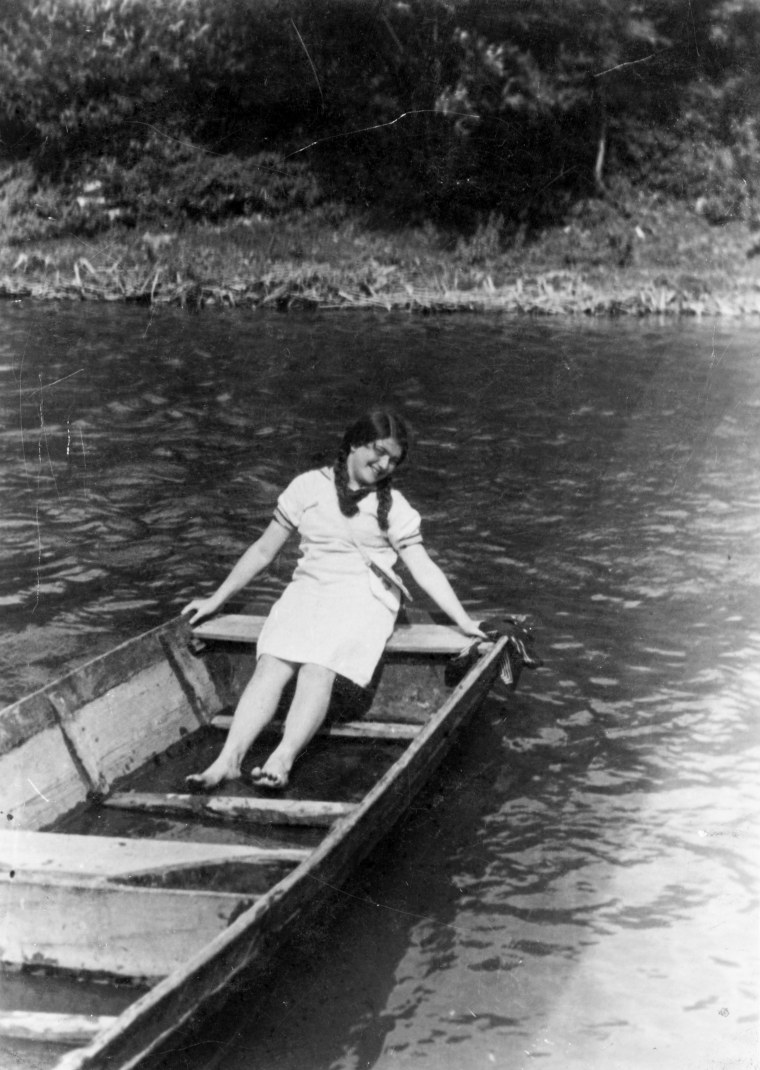“Renia’s Diary: A Holocaust Journal” by Renia Spiegel documents four years of the teenage girl’s life in Nazi-occupied Poland.
By Linda Givetash
The profound and heartbreaking account of a Jewish girl trying to survive the terrors of occupied Poland during the Holocaust is being published.
“Renia’s Diary,” set to be released on Sept. 24 in the United States, has been likened by publishers to the story of Anne Frank and is poised to become a classic of Holocaust literature.

Renia Spiegel, born in eastern Poland in 1924, began writing her diary in 1939 with dreams of becoming a poet. She’d been living with her sister and grandparents in the south-eastern city of Przemysl when the war broke out, separating her from her mother who was in Warsaw.
While her story reflects the terror of living in war — fleeing overnight air raids and noticing the disappearance of Jewish families — it is also an earnest account of falling in love and finding her voice as a writer.
“I just want a friend. I want somebody to talk to about my everyday worries and joys,” she wrote in 1939.
She documented mundane shifts in her school and life amid the onset of the war to document the violence of the Nazi occupation and the creation of a ghetto.
“I live here now; the world is separated from me and I’m separated from the world,” she wrote in July 1942.
She also described how the Nazis forced Jews to wear armbands with the Star of David and pervasive hunger.
Spiegel was shot dead by German soldiers in 1942, just before her 18th birthday, after being found in hiding.
The 700 pages she filled over a four-year period were left with her boyfriend, Zygmunt, who also wrote the final entry following her death.
He managed to share the diary with someone for safekeeping before he was sent to Auschwitz. Publisher St. Martin’s Press says it’s unclear how the text survived the war, but Zygmunt recovered the diary and eventually return it to Spiegel’s sister, Elizabeth Bellak, who escaped to New York City.
Elizabeth couldn’t bring herself to read the diary and instead stored it in a bank vault until 2012, when her daughter rediscovered the diary and had it translated. Elizabeth contributed a prologue and epilogue to the publication.

